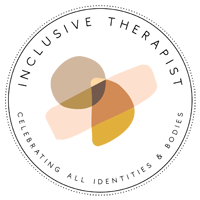Anger is a powerful emotion that we all experience. It’s a natural part of being human, but it can also be confusing and overwhelming. In this blog post, we’ll explore what anger is, why we feel it, and how we can manage it in healthy ways.
What is Anger?
Anger is an emotional response to something we perceive as threatening, unfair, or frustrating. It’s often described as a “negative” emotion, but anger itself isn’t good or bad – it’s how we express and manage it that matters.
The Purpose of Anger
Anger serves several important purposes:
- It signals that something is wrong or that our needs aren’t being met.
- It motivates us to take action and make changes.
- It helps us set boundaries and protect ourselves.
Anger as a Message and a Secondary Emotion
Anger often acts as a messenger, telling us that something is happening that we don’t like or that our needs aren’t being met. It’s important to listen to this message and try to understand what’s really bothering us.
Frequently, anger is a secondary emotion – one that covers up more vulnerable feelings like hurt, fear, or sadness. For example, if a friend cancels plans at the last minute, we might feel angry on the surface, but underneath, we might feel hurt or disappointed.
The Physiological Experience of Anger
When we’re angry, our bodies go through several changes:
- Increased heart rate and blood pressure
- Muscle tension
- Faster breathing
- Release of stress hormones like adrenaline and cortisol
These physical responses prepare us for “fight or flight,” but they can be harmful if we experience them too often.
The Pros and Cons of Anger
How Anger Helps Us
- It motivates us to solve problems and make changes.
- It helps us stand up for ourselves and others.
- It can provide energy and determination to overcome obstacles.
How Anger Can Limit Us
- It can damage relationships if expressed aggressively.
- It may cloud our judgment and lead to poor decisions.
- Chronic anger can negatively impact our physical and mental health.
Factors Influencing Anger
*Genetic Influences
Some people may be more prone to anger due to genetic factors that affect temperament and emotional regulation. However, this doesn’t mean we’re destined to have anger issues – we can still learn to manage our emotions effectively.
*Environmental Conditioning
How we experience and express anger is heavily influenced by our cultural background and family upbringing. Some cultures view anger as a normal, acceptable emotion, while others see it as disruptive or disrespectful. Similarly, our families teach us, directly or indirectly, how to deal with anger:
- Voiced Anger: Some people are taught to express anger openly and directly.
- Suppressed Anger: Others learn to keep anger hidden, believing it’s wrong or dangerous to show it.
- Passive-Aggressive Anger: Some express anger indirectly through sarcasm, withdrawal, or other subtle behaviors.
*Self-Awareness Capacity
Our ability to recognize and understand our emotions plays a crucial role in managing anger. Developing self-awareness allows us to catch angry feelings early and respond more thoughtfully.
Managing Anger
Here are some strategies for healthier anger management:
- Recognize the signs: Learn to identify when you’re starting to feel angry.
- Take a timeout: Give yourself space to cool down before responding.
- Practice deep breathing: This can help calm your body’s physical response.
- Identify the underlying emotion: Ask yourself what you’re really feeling beneath the anger.
- Express yourself assertively: Communicate your needs and feelings clearly without aggression.
- Find healthy outlets: Exercise, art, or journaling can provide positive ways to release anger.
- Seek professional help: If anger is a persistent issue, consider talking to a therapist.
Remember, anger is a normal human emotion. The goal isn’t to never feel angry, but to learn how to express and manage it in ways that are healthy for you and those around you. With practice and patience, we can all improve how we relate to anger and use this powerful emotion as a tool for positive change in our lives.
Contact
If this post has piqued your interest and you’d like to reach out to us, you are welcome to contact us here.













